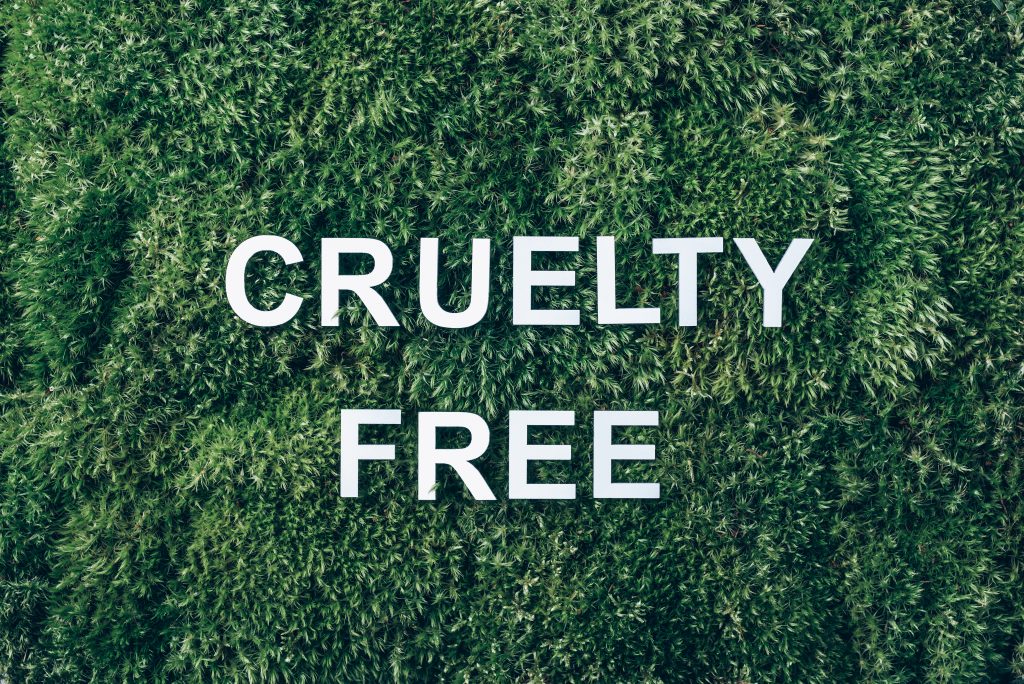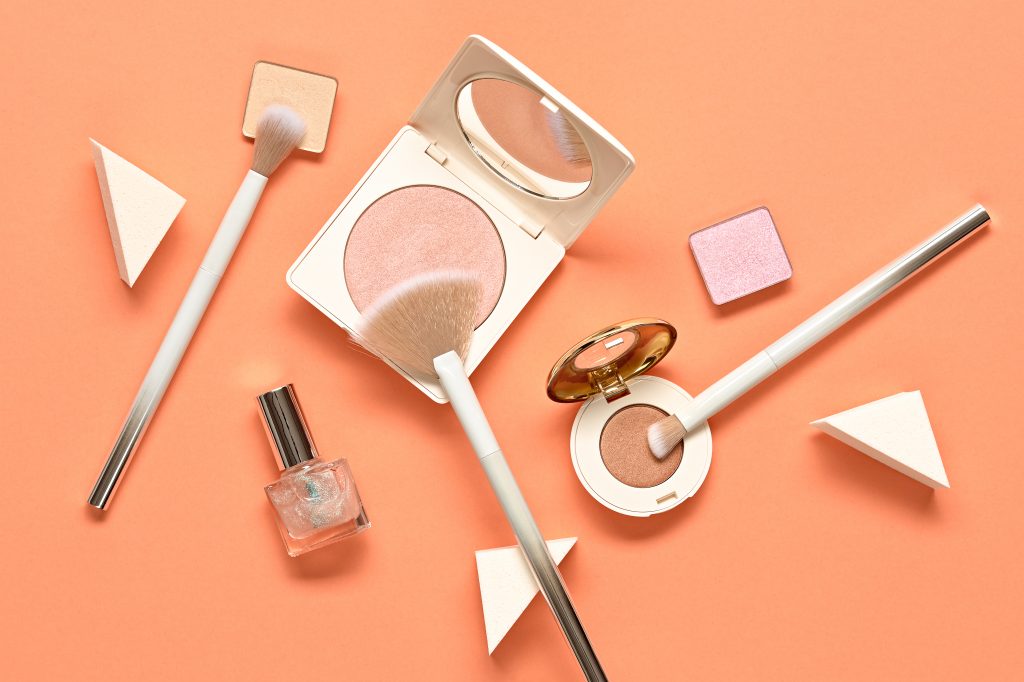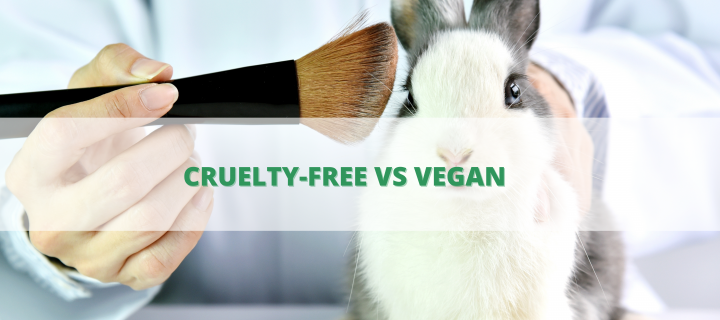When it comes to beauty products, makeup, and skincare, you might have seen the terms “cruelty-free” and “vegan friendly” on labels and wondered what the difference was. Is vegan friendly the same as cruelty-free? Is one better than the other?
Here’s a quick guide to help you understand the difference between cruelty-free and vegan skincare and makeup.
Cruelty-Free Skincare and Makeup

Cruelty-free products are those that have not been tested on animals at any stage of production.
This means that no animals were harmed in the making of the product and that the product and its ingredients were not tested on animals. Many beauty and skincare brands, unfortunately, choose to test their products on animals (such as rabbits and rats) because it is considered a cheaper and faster way to test product safety.
Fortunately, there are now many cruelty-free options available on the market, so you can easily find products that have not been tested on animals.
However, note that cruelty-free does not mean vegan! Brands can use animal-derived ingredients in their products but not test on animals, which would still give them the label “cruelty-free.”
If you’re on the lookout for cruelty-free skincare and makeup products, make sure the packaging has either The Leaping Bunny Logo or PETA’s cruelty-free logos.
What’s the difference between cruelty-free and not tested on animals?
It’s believed that the main difference between cruelty-free and not tested on animals is that cruelty-free products have not been tested on animals at any stage of production, while not tested on animals only means that the final product has not been tested on animals.
However, note that there are no legal definitions for these terms and they are sometimes used to mean the same thing. It’s best to search the logo used by the product online and see what the organization doing the accreditation has to say about it.
Vegan Skincare and Makeup

Vegan skincare and makeup products do not contain any animal-derived ingredients or animal-derived by-products.
This includes ingredients like beeswax, honey, collagen, carmine, and keratin. Vegan skincare products are also cruelty-free because they have not been tested on animals. Usually, vegan products focus on plant-based ingredients but they can also have laboratory synthesised ingredients.
Many “regular” skincare and makeup products contain these animal-derived ingredients, so it is important to check labels carefully if you are looking for a vegan option.
The term “vegan friendly” on a label usually means that the product does not contain any animal-derived ingredients but may have been tested on animals (as mentioned above, cruelty-free and vegan are not the same thing!). Additionally, it might also mean that the product is vegan but has not received accreditation from a certified organization.
You can always check for a vegan logo on your skin products, but note that these logos differ from country to country. However, a few well-known vegan logos are the Certified Vegan Logo and The Vegan Trademark.
So, what’s the difference between cruelty-free and vegan?
The main difference between cruelty-free and vegan skincare and makeup is that vegan products do not contain any animal-derived ingredients, while cruelty-free products have not been tested on animals.
Vegan products may be cruelty-free, but not all cruelty-free products are vegan.
Both vegan and cruelty-free products are considered to be more ethical choices because of their stance on animal rights.
When it comes to choosing between vegan and cruelty-free products, it really depends on your personal preference. Some people prefer to use vegan products because they do not contain any animal-derived ingredients, while others prefer cruelty-free products because they have not been tested on animals.
However, it is generally considered better to choose vegan products, as they also ensure that no animal has been harmed at any stage of the production process.
It’s important to read the label carefully and always keep an eye out for fake logos! Additionally, note that logos and cruelty-free/vegan statuses get updated over the years, so make sure to keep up with the new updates.
Thankfully, there are many apps, articles, and videos online that can help you figure out if the skincare or makeup brand you’re interested in is vegan or cruelty-free.





